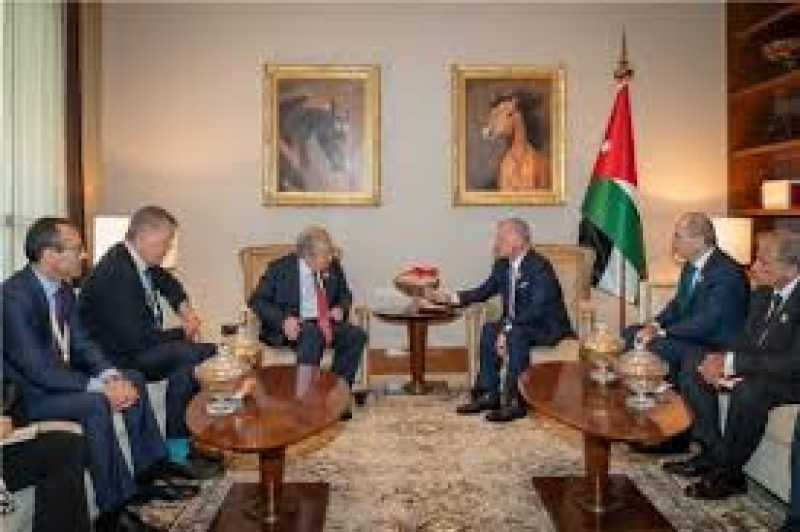- A Day of People-Centered Food System Storytelling! |
- No evidence of postal ballot irregularities found: EC Sanaullah |
- Bangladesh Bank injects Tk 9,178 crore to ease liquidity strain |
- No LPG Shortage Expected During Ramadan: BERC Chairman |
How the Arab world will enable Palestine to win its war of liberation
As long as the Arab world remains steadfast and clear that the US must stop blocking the two-state solution, an independent, sovereign UN member state of Palestine will likely emerge very soon.

Israel’s war on Gaza has become Palestine’s Liberation War. The brutality of the war and blatant disregard for international law have shaken global politics to the core. But with Arab unity, Palestine will win its liberation, paving the way to peace and security in the Middle East through a two-state solution.
Even though the United States government acknowledges the need for a two-state solution, it blocks it in practice, being the sole veto last month against Palestine’s membership in the United Nations. Israel counts on the US to continue to prevent the emergence of a truly sovereign State of Palestine. Yet even this obstacle can be overcome.
The Arab nations, with impressive unity, are circumventing US resistance. After a meeting of the Arab League in Bahrain in mid-May, the Arab world is working towards a global conference to implement the two-state solution.
The Bahrain Declaration calls for “an international conference under the auspices of the United Nations to resolve the Palestinian issue based on the two-state solution, which ends the Israeli occupation of all occupied Arab territories, embodying an independent, sovereign and viable Palestinian state in accordance with the resolutions of international legitimacy, to live in peace and security alongside Israel, as a way to achieve a just and comprehensive peace”.
Arab unity on the two-state solution has been strengthening for more than two decades. The breakthrough came in 2002 with the Arab Peace Initiative although Israel rejected the Arab peace offer of the two-state solution and the US repeatedly backed Israel in its rejectionist policies. After the outbreak of the Gaza War in October, the Arab and Islamic leaders reiterated the peace proposal in a meeting in Riyadh in November.
Since then, Arab-backed diplomacy for the two-state solution has been accelerating, even as Israel’s war on Gaza has continued unabated on the ground. After numerous delays and vetoes by the US, the UN Security Council finally backed an immediate ceasefire on March 25 although Israel brazenly ignored the resolution. On April 18, the UN Security Council voted overwhelmingly for Palestine’s membership in the UN with only the US voting against and two countries (the United Kingdom and Switzerland) abstaining. On May 10, the UN General Assembly overwhelmingly backed Palestine’s bid for UN membership in a 143-9 vote. On May 22, Norway, Spain and Ireland announced plans to recognise a Palestinian state, and the Irish prime minister said he’s confident “more countries will follow”.
Not only is the diplomatic process in the UN and the Arab League isolating the US, but the force of international law is weighing in relentlessly as well. South Africa’s case at the International Court of Justice (ICJ) charging Israel with genocide has led to a crucial interim judgement of the ICJ on January 26, which said it is plausible that Israel is in violation of the 1948 Genocide Convention, and to an emergency order on Friday for Israel to immediately stop its operations in Rafah. This week, the prosecutor of the International Criminal Court also recommended arrest warrants against Israeli Prime Minister Benjamin Netanyahu and Defence Minister Yoav Gallant along with three Hamas leaders.
A global conference would make an end run around the US. More likely, the US will change its own position. US isolation in the world is intolerable for its security and national interests. The US needs good relations with the Arab world with its nearly 500 million population, its strategic location, economic role and centrality in the world energy system. The US also needs good relations with the wider Islamic world and its nearly two billion Muslims.
The Israel lobby in the US is working feverishly to hold back moves towards a two-state solution. In America’s corrupt politics, money talks. The Israel lobby promises campaign financing. Yet lobbying has its limits. American public opinion is turning against Israel’s apartheid rule and its shocking violence in Gaza.
The mainstream US media are now showing the US public that well before last October, Israel’s justice system had already become an instrument of oppression, dispossession and systematic murder against Palestinians. Social media convey the daily destruction in Gaza with Israeli soldiers gloating as they destroy a university, hospital or apartment building.
The US is trying one last gambit, the age-old trick of divide and conquer – trying to break Arab unity over Palestine by making a side deal with Saudi Arabia. The US promises nuclear technology, advanced fighter planes and a defence pact if the Saudis immediately normalise relations with Israel, leaving the sovereignty of a Palestinian state to yet another vague peace process.
The US gambit will almost surely fail as the Arab countries are recognising the unprecedented power of Arab unity to establish peace in their region. The Arab countries are not only on the side of justice for the Palestinian people but are also on the side of overwhelming world opinion. As long as the Arab world remains steadfast and clear that the US must stop blocking the two-state solution, an independent, sovereign UN member state of Palestine will likely emerge very soon, according to the will of the region and the world community.
By Jeffrey Sachs and Sybil Fares

